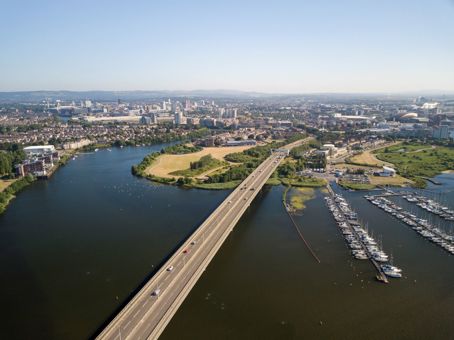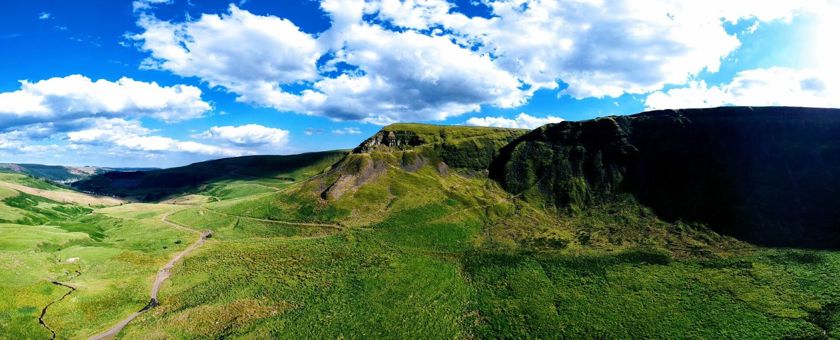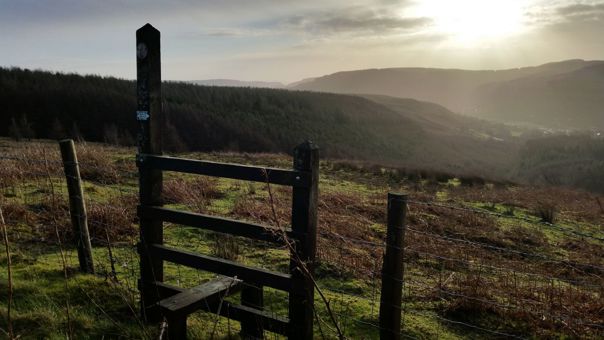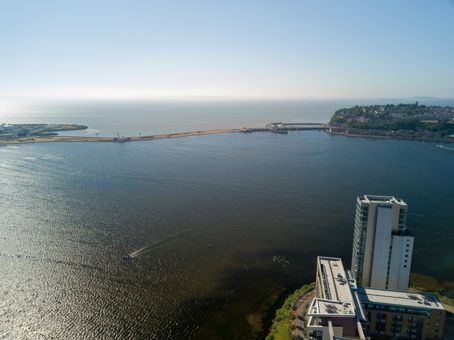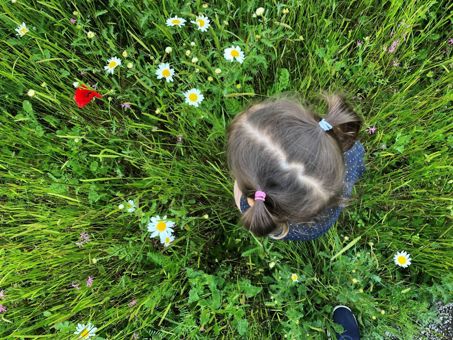Improving our air quality
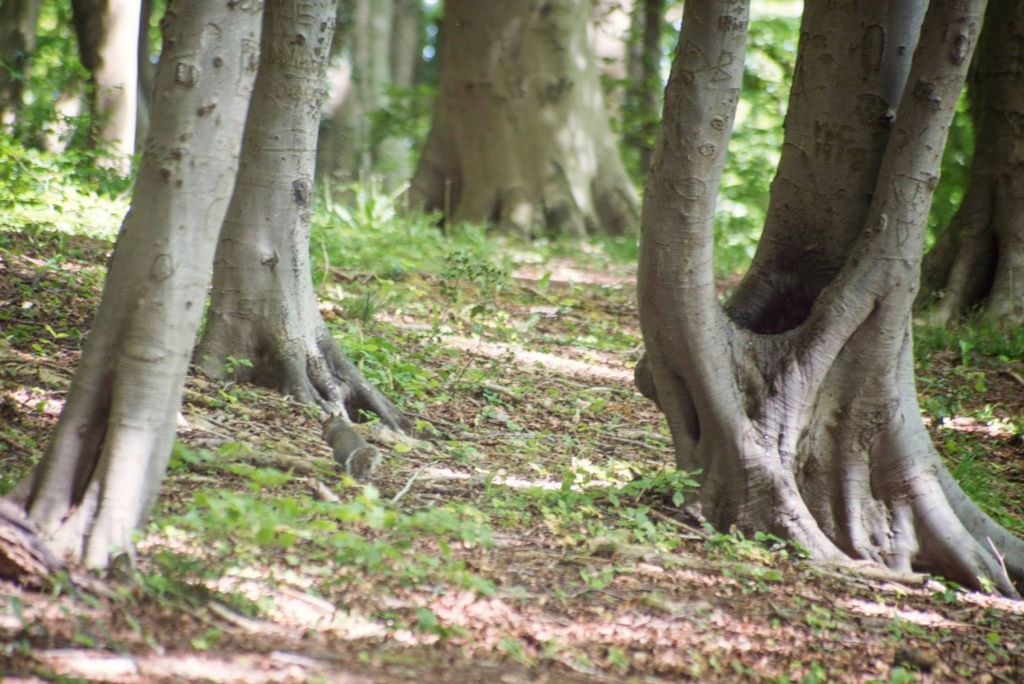
Why this theme?
The South Wales of today is immeasurably cleaner than the South Wales of, say, the 1960s. Why? Because the traditional heavy industries that once put the area on the map have now largely disappeared.
Despite that, parts of Wales still have some of the worst air quality in Britain. This contributes to an estimated 1,000-1,400 deaths in Wales every year and, in the past, resulted in persistent breaches of European Union regulations. Public Health Wales has gone as far as describing the situation as a public health crisis, recognising the link that air pollution has with poor health and deprivation. In fact it has been estimated that air pollution costs Wales £1 billion every year in terms of lost work days and costs to the health service.
As the most densely populated part of the country, criss-crossed by major transport arteries and featuring many traffic ‘hotspots’, it stands to reason that issues surrounding air quality simply cannot be ignored in South Central Wales. That said, transport isn’t the only contributory factor. Changes in agricultural practices have played a part, as has industry and wildfires that occur at certain times of the year.
In common with the other themes in this Area Statement, South Central Wales is proposing that a more joined-up approach be taken towards countering poor air quality, developing new ways of working both internally and with strategic partners in order to improve air quality everywhere, not just in or around those most polluted ‘hotspots’.

What would success look like?
The issue of exposure to air pollutants requires action by public authorities at all levels – local, regional, national, even international. A multi-sector approach towards preventing and reducing emissions is necessary in order to develop and effectively implement long-term policies and strategies. This approach is supported across Wales through the Well-being of Future Generations (Wales) Act 2015, introduced by the Welsh Government.
With that in mind, we must identify opportunities and ways to integrate the information and evidence contained in this Area Statement and elsewhere into the existing planning and decision-making processes.
On a strategic level, success in South Central Wales would involve the natural environment and ecosystems being fully incorporated into this multi-sector way ahead, with measures being taken to enhance the resilience of ecosystems in line with the Welsh Government’s Natural Resources Policy of 2017. That, in turn, will allow Natural Resources Wales (NRW) and our partners to deliver nature-based solutions that benefit our air quality, tapping into mechanisms identified in our Connecting people with nature theme.
Nature-based solutions identified in the Natural Resources Policy include enhanced canopy cover and strategically placed woodland, together with an increase in what is sometimes referred to as ‘green infrastructure’. This is a term that covers a wide range of natural and semi-natural features, spaces, rivers and lakes including parks, fields, allotments, hedgerows, roadside verges, gardens and sustainable drainage systems, not to mention entire ecosystems such as wetlands, waterways and mountain ranges.
Who have we worked with to date?
This theme was identified based on evidence gathered by NRW and provided by the Public Services Board (PSBs aim to improve joint-working across all public services in local authority areas throughout Wales). NRW colleagues, both locally and nationally, along with external environmental experts were of the shared opinion that air quality in South Central Wales, and the impact that it has on us, needed to be addressed in accordance with Sustainable Management of Natural Resources (SMNR) legislation.
The Area Statement aims to complement and add value by ensuring that the natural environment plays a prominent role in the decision-making process surrounding how air quality across South Central Wales can be improved. To date, we have worked with:
- One Planet Cardiff (Cardiff PSB board), supporting the Clean Air Cardiff initiative
- Public Health Wales, which has been especially proactive in terms of raising awareness of air quality as an issue, along with conducting research and carrying out positive action
- The Welsh Government, currently in the process of developing a ‘Clean Air Plan For Wales’ which will propose a range of actions designed to improve air quality
What are the next steps?
Initially, we will continue to work with One Planet Cardiff, Public Health Wales and the Welsh Government to ensure that our Area Statement adds value (e.g. the Clean Air Cardiff initiative) to the ‘Clean Air Plan For Wales’ consultation process. By doing this, we anticipate that further areas of focus will be identified, leading in turn to more engagement with stakeholders including local authorities.
Following the ‘Clean Air Plan For Wales’ consultation process, we will use what’s known as ‘theory of change methodology’ – a procedure widely employed by organisations to define long-term goals surrounding planning, participation and evaluation – to determine what NRW and others can do to improve air quality by way of applying the same nature-based solutions outlined above under ‘What would success look like?’ That includes working with local authorities and other bodies to assess and expand the ‘green infrastructure’, while also joining forces with public and private landowners, together with the Welsh Government, to develop a local approach to woodland creation aimed at enhancing ecosystem resilience.
It’s worth noting that the national challenges and opportunities for the sustainable management of natural resources relevant to this theme, as identified in the Natural Resources Policy, include (a) reducing noise pollution and pollution levels in our air, and enhancing air quality, and (b) supporting preventative approaches to health outcomes, with a particular focus on the key public health issues of transport-related air and noise pollution, along with tackling physical inactivity and mental health. It is also closely associated with taking action to reduce the pressures on natural resources, for instance through resource efficiency and renewable energy.

How does what we’ve proposed deliver Sustainable Management of Natural Resources (SMNR)?
As outlined above, the Welsh Government is currently consulting on its ‘Clean Air Plan For Wales’. This programme sets out to develop and implement actions required across Welsh governmental departments and sectors aimed at making our air cleaner. Core components of the programme include a Clean Air Plan and Clean Air Zones. Clean Air Zones comprise of various interventions that require changes in practice and adopting a joined-up, multi-sector approach to reducing air pollution. Whilst the programme’s immediate aim will be to achieve compliance with existing air quality obligations, it nevertheless aligns with the approach that this Area Statement is taking.
From an NRW perspective, the consultation process surrounding the ‘Clean Air Plan For Wales’ programme gives the opportunity to join, and add value, to the wider debate surrounding air quality, ensuring that nature-based solutions form an integral part of what is to come.
By linking Area Statements to the public health agenda, the natural environment will play a prominent role in discussions, with NRW forming equitable partnerships which put the natural environment at the heart of the decision-making process.
How can people get involved?
In South Central Wales, we are committed to working in an open and transparent way. With that in mind, we want to encourage people to get involved in improving our air quality. The Area Statements process allows us to establish new ways of working which will be identified as we develop the next steps. Should you wish to find out more, please don't hesitate to email us at southcentral.as@cyfoethnaturiolcymru.gov.uk
Give us your feedback

